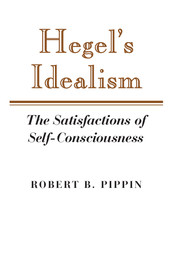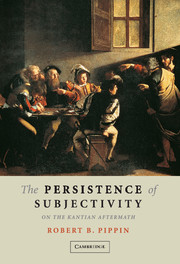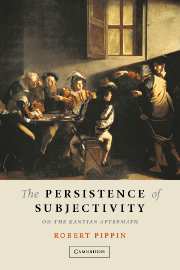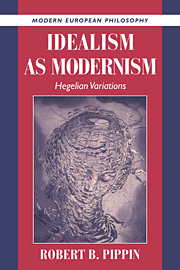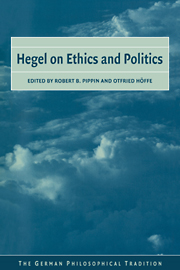Hegel's Idealism
This is the most important book on Hegel to have appeared in the past ten years. Robert Pippin offers a completely new interpretation of Hegel's idealism, which focuses on Hegel's appropriation and development of kant's theoretical project. Hegel is presented neither as a precritical metaphysician nor as a social theorist, but as a critical philosopher whose disagreements with Kant, especially on the issue of intuitions, enrich the idealist arguments against empiricism, realism and naturalism. In the face of the dismissal of absolute idealism as either unintelligible or implausible, Pippin explains and defends an original account of the philosophical basis for Hegel's claims about the historical and social nature of selfconsciousness, and so of knowledge itself.
Reviews & endorsements
"...the scholarship on which the book is based is first-rate and the presentation is genuinely philosophical...the book is an important one, and one any serious advanced student of German Idealism will have to read." Professor Raymond Geuss, Columbia University
"This is an important book, not only for our understanding of Kant and Hegel, but for the insights it provides into our current self-image as philosophers and historians of philosophy." Stephen Priest, Times Higher Education Supplement
Product details
February 1989Paperback
9780521379236
340 pages
231 × 160 × 23 mm
0.5kg
Available
Table of Contents
- Acknowledgments
- Primary texts abbreviations
- Part I. The Idealist Background:
- 1. Introduction
- 2. Kantian and Hegelian idealism
- 3. Fichte's contribution
- 4. The Jena formulations
- Part II. The Phenomenology of Idealism:
- 5. Skepticism, knowledge, and thruth in the Jena phenomenology
- 6. Overcoming consciousness
- 7. satisfying self-consciousness
- Part III. Idealist Logic:
- 8. Objective logic
- 9. Reflected being
- 10. Hegel's idea
- Notes
- Bibliography
- Index.

